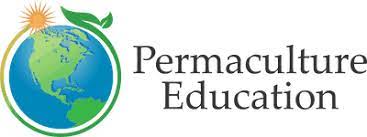Shopping seems like a task for most people who want to embrace the permaculture approach to life. When you want to intertwine your life to principles like ‘produce no waste’ or ‘find slow and simple solutions’ or ‘use and value renewables’, you cannot possibly exist in the consumerist world of today without questioning every purchase you make.
Just to put things into perspective, consumerism directly defines human beings as predators of natural elements – consuming the finite resources for their convenience. The negative connotation that this word has, always puts questions into the minds of people who want to be better.

Product packaging is clogging the landfills. Product manufacturing is polluting the groundwater, deforesting the Amazon, fouling the rivers, lowering the water table, depleting the ozone layer and changing the weather. Millions of people are exploited as cheap labour, made to work under inhumane conditions to actually get us ‘cheap’ products. Now if we were to buy a product manufactured as a result of this entire mess, we are basically paying corporations to support this culture.
Evaluating where you are spending your money could put the planet back on track.
In order to make this journey easier, lots of small businesses are trying to be ethical in the way they produce. Here are some parameters based on which you can judge if a brand is actually ethical and worth buying from:
- They sell utility products that you need for a better life, not luxury products that are resource intensive or social symbols.
- They pay their workers fair wages. If you compare bank accounts of junior employees and the CEO, the difference should be hundreds, not billions.
- They run on renewable energy or at least try to minimize the use of finite resources.
- They are putting in efforts to mitigate plastic packaging.
- The raw materials are sourced organically or with least negative impact to the planet.
- Beware of green washing practices that might mislead you.
Now this might seem like a lot of work. Researching before buying every single item you need is quite a task. That is where we come in. We have done all this research for you and curated a regenerative marketplace. The ‘Permaculture Shop’ lists some amazing products that are ethical and eco-friendly. Our aim is to popularize small businesses that are genuinely taking efforts to make shopping less exploitative.
Now, before curating products from the millions of items we use every day, we decided to prioritize based on what premise are constantly on the lookout for. We have books that will change the way you think, tools that will make your life easier, zero waste paraphernalia that will ensure you have an empty dustbin, grow kits and greenhouse setups to get you started, gifts to encourage your loved ones to start the Permaculture journey and so much more! Check it out and let us know what more we should add.
We are constantly on the lookout for more fair trade brands to give a wider product range to our visitors. If you are an ethical brand with products that would be of interest to the Permaculture community and like-minded people, please email us with details of your brand and what you offer 🙂